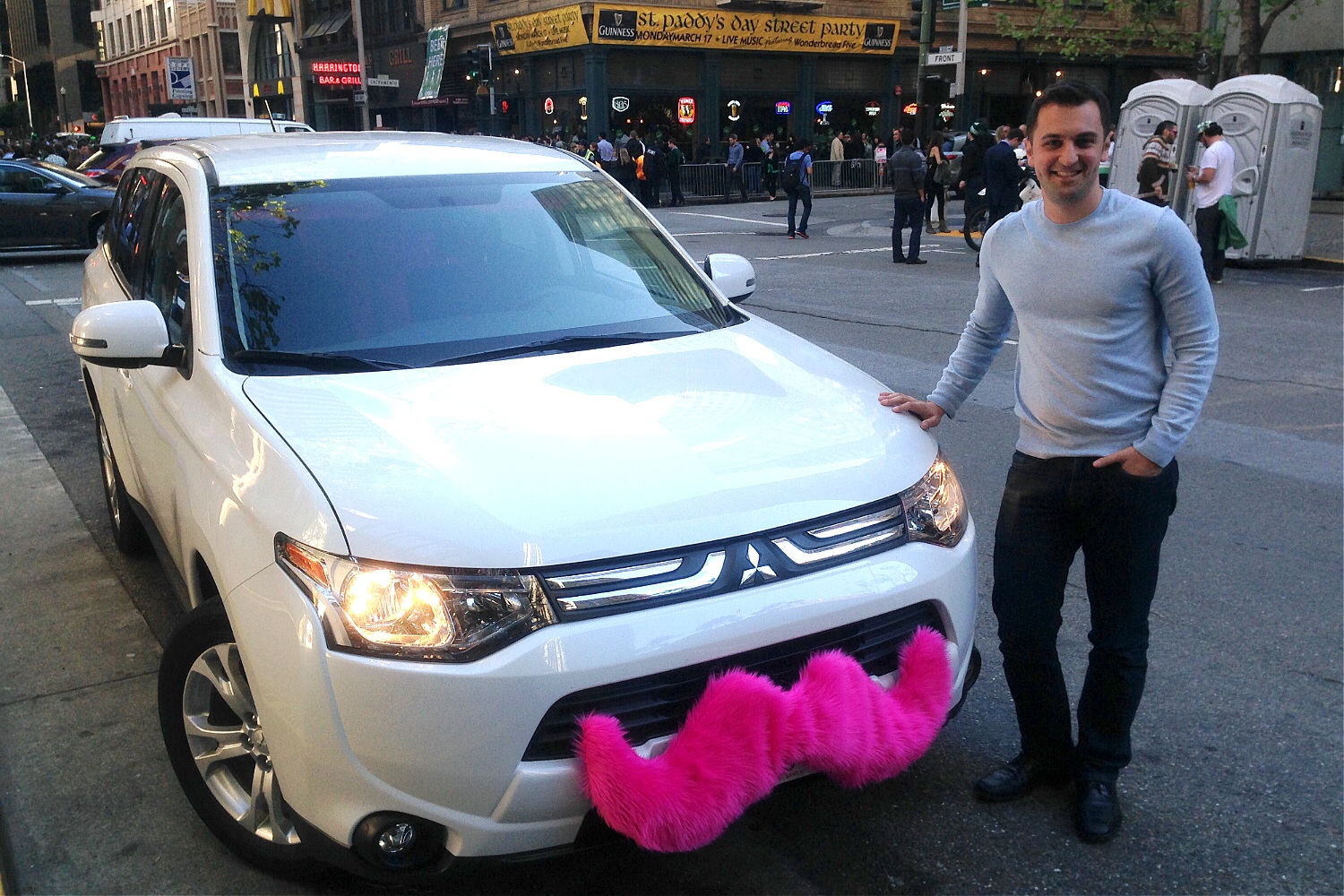
In the world of newfangled, taxi-replacing ride-sharing services — dominated by Lyft, Sidecar and Uber — there’s a concept that goes under several different names but never makes passengers happy: higher prices at times of peak demand. In the case of Lyft, it’s known as Prime Time Tips, and as with Uber’s Surge Pricing, the company pitches it to customers as a way to help make sure that enough cars are available during busy periods.
How about the flipside situation: those times of days when fewer people are using the service, leading to an oversupply of drivers? Couldn’t these services goose business by cutting prices? Yes, they could. And starting today, Lyft is going to try to do so, with a new policy it’s calling Happy Hour. Cofounder and CEO John Zimmer told me about it — while giving me the full Lyft experience by driving me around San Francisco’s Financial District in a Mitsubishi SUV, complete with a fist bump when I hopped in and the company’s trademark pink mustache affixed to the front of the vehicle.
Happy Hour will go into effect automatically during slow times — such as the middle of weekdays, when most people are at work — and you’ll be alerted when you open Lyft’s app. The discount off standard prices will be anywhere from 10% to 50%. That’ll make passengers happy, but Zimmer says that it’ll also be good for drivers, since they may be able to get more business than they would have received at standard prices, thereby making more money overall.
As for Prime Time, Zimmer says that it’s capped at a maximum of 200% of standard pricing, and rarely gets that high.
Lyft currently offers service in 24 cities, and is expanding at a rapid clip: This week it’s adding San Antonio and Providence to the list. It has tens of thousands of drivers and hundreds of thousands of passengers.
The world is still figuring out how to deal with the whole concept of these services — this week the Seattle City Council voted to limit the number of ride-sharing drivers allowed on the road at any given time, a move Zimmer told me he found disappointing — but no matter how hard the entrenched taxi business works to make life difficult for Lyft and its rivals, it’s hard to imagine that they won’t grow only more popular in the years to come.
More Must-Reads from TIME
- Why Trump’s Message Worked on Latino Men
- What Trump’s Win Could Mean for Housing
- The 100 Must-Read Books of 2024
- Sleep Doctors Share the 1 Tip That’s Changed Their Lives
- Column: Let’s Bring Back Romance
- What It’s Like to Have Long COVID As a Kid
- FX’s Say Nothing Is the Must-Watch Political Thriller of 2024
- Merle Bombardieri Is Helping People Make the Baby Decision
Contact us at letters@time.com